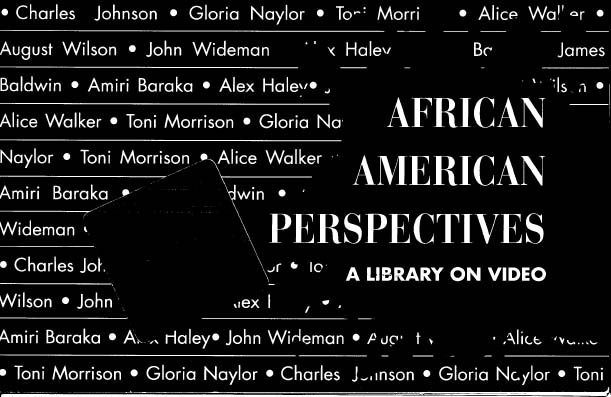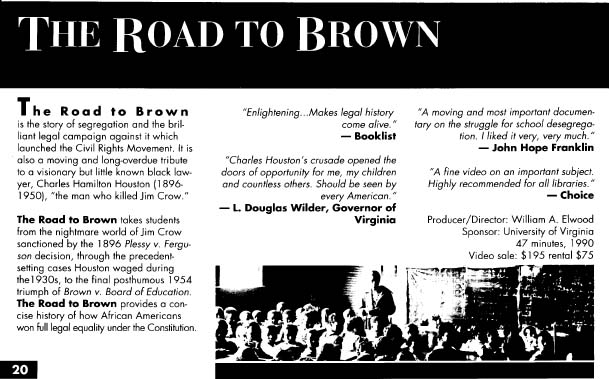 |
 |
Selected Chronology
The United States Constitution and Individual Civil Rights
1776- Declaration of Independence
We hold these truths to be self-evident, that all men are created equal,
that they are endowed by their Creator with certain unalienable Rights,
...
1783, May 15- Vox Africanorum in the Maryland Gazette
(Annapolis)
We have lately beheld, with anxious concern, your infant struggles
in the glorious cause of liberty — We attended to your solemn declaration
of rights of mankind — to your appeals, for the rectitude of your principles,
to the Almighty, who regards men of every condition, and admits them to
a participation of his benefits — We admired your wisdom, justice, piety,
and fortitude.
Though our bodies differ in colour from yours; yet our souls are similar in a desire for freedom. Disparity in colour, we conceive, can never constitute a disparity in rights. Reason is shocked at the absurdity! Humanity revolts at the idea!
1788, May 16- Othello in the Maryland Journal and Baltimore
Advertiser:
SLAVERY, unquestionably, should be abolished, particularly in this
country; because it is inconsistent with the declared principles of the
American Revolution. ... This is the least we can do, in order to evince
our sense of the irreparable outrages we have committed, to wipe off the
odium we have incurred, and to give mankind a confidence again, in the
justice, liberality, and honour, of our national proceedings.
1791, December 15- the first ten Amendments (Bill of Rights) to the U.S. Constitution are declared officially ratified.
1802- Universal white manhood suffrage adopted by Maryland. Free Blacks excluded from voting.
1833- Barron v. Baltimore. Opinion written by Chief Justice John Marshall: amendments to the Constitution do not protect individuals from actions taken by the respective states or local jurisdictions.
1857- Dred Scott v. Sandford (not fully overturned until 1954-1955). Opinion written by Chief Justice Roger Brooke Taney of Maryland: the negro had no rights which the white man was bound to respect.
1864- Slavery abolished in Maryland with the adoption of a new State Constitution.
1865- 13th Amendment abolishes slavery.
1868- 14th Amendment calls for due process for all.
1870- 15th Amendment extends voting rights to black men, naturalized
males of age.
The initial review of the 13th through the 15th Amendments by the Supreme
Court left interpretation and enforcement largely to the states.
1883- U. S. v. Singleton (Civil Rights Cases). left enforcement of civil rights to the states, but a vigorous dissent was written by Justice John Marshall Harlan, using (according to tradition) Roger Brooke Taney's inkwell.
1896- Plessy v. Ferguson (overruled in Gale v. Browder, 1956). Established separate but equal doctrine in civil rights; dissent by Justice John Marshall Harlan.
1908- Berea College v. Kentucky. States could order segregation in private colleges; dissent by Justice John Marshall Harlan.
1915- Voting rights cases decided by the Supreme Court including Meyers v Anderson in which the voting rights of a black Civil War veteran from Annapolis, Maryland were reinstated. In 1908, the Maryland Legislature passed a new City Code for Annapolis that denied blacks the right to vote if they had less than $500 worth of property or if a parent, grandparent, or direct ancestor was not permitted to vote before 1868 (known as a grandfather clause). The Supreme Court found this and other similar laws contrary to the provisions of the 15th Amendment to the Constitution, but left the door open for other kinds of restrictions such as those based upon literacy tests and the nonpayment of poll taxes.
1920- 19th Amendment grants women the right to vote.
1935-1936- [Maryland Courts] Murray v. Pearson. Court orders integration of the University of Maryland Law School.
1936-1937- NAACP fails in its attempt (with Thurgood Marshall as counsel) to integrate Catonsville High School in Baltimore County, Maryland. NAACP successful in obtaining equal pay for black teachers in segregated schools in Calvert County, Maryland. State of Maryland greatly increases funding to black colleges in Maryland and to scholarships for blacks. NAACP successful in preventing an amendment to the Black Scholarship Fund that would have required recipients to attend out-of-state colleges.
1954-1955- Brown v. Board of Education (2 cases decided by the U.S. Supreme Court). Court ordered integration of secondary public schools and, on matters of individual rights, the Court adopted as its majority opinion that the Bill of Rights does apply to individuals in disputes between individuals and their state and/or local government, and that enforcement of those rights can be a federal matter.
1964- 24th Amendment abolishes poll taxes as a means of preventing participation in federal elections.
1971- 26th Amendment gives 18 year-olds the right to vote.
Sources for videos:
 |
 |

The Archives of Maryland Documents for the Classroom series of the Maryland State Archives was designed and developed by Dr. Edward C. Papenfuse and Dr. M. Mercer Neale and was prepared with the assistance of R. J. Rockefeller, Lynne MacAdam, Leigh Bond, Matt Brown, Laura Lisy, and other members of the Archives staff. MSA SC 2221-11. Publication no. 1844.
© Copyright September 16, 1996, rev. July 1998 Maryland State Archives
For further inquiries, please contact Dr. Papenfuse at:
E-mail: edp@mdarchives.state.md.us
Phone: MD toll free 800-235-4045 or (410) 260-6401
|
Tell Us What You Think About the Maryland State Archives Website!
|